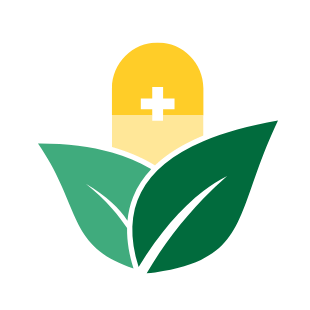One of the main plant ingredients with scientifically proven effect on the prostate and its function is the Common Nettle. Does that sting as a surprise? Let’s dive into how this seemingly mundane plant can work in our bodies and aid to a healthy prostate!
Where? What? Traditional use?
Urtica dioica or common nettle belongs to the Urticaceae plant family and originates from Africa and western Asia, but is now also widespread in other parts of the world (such as Europe and North America). In traditional medicine, its root has been used for many indications and some of them are recognised by the pharmacopeias. As such, it is diuretic (increasing the production of urine and thus reducing the amount of fluid in tissues and blood vessels), it’s anti-inflammatory (for example for rheumatism treatment), and it also has advantageous effect on prostate diseases.
How does it work?
One of the causes of prostate disorders are hormonal imbalances. More specifically, testosterones are being metabolized (changed) into estrogens. The enzyme that is necessary for this process (aromatase) is blocked by certain molecules found in the root of the common nettle (lignans such as β-sitosterol). Because of that, the turnover of testosterone to estradiol (a type of estrogen) is counteracted.
On top of that, it is shown that the common nettle root extract also reduces PSA (Prostate Specific Antigen) levels. PSA levels in blood are monitored in men who experience prostate issues and are used as a measure of the severity of prostate cancer levels.
Several scientific studies have demonstrated the beneficial effect of using the common nettle root for conditions as benign prostate hyperplasia (enlarged prostate) and prostate cancer.
REFERENCES
Tahri A, Yamani S, Legssyer A, Aziz M, Mekhfi H, Bnouham M, et al. (2000) Acute diuretic, natriuretic and hypotensive effects of a continuous perfusion of aqueous extract of Urtica dioica in the rat. Journal of ethnopharmacology 73:95-100
Johnson TA, Sohn J, Inman WD, Bjeldanes LF, & Rayburn K (2013) Lipophilic stinging nettle extracts possess potent anti-inflammatory activity, are not cytotoxic and may be superior to traditional tinctures for treating inflammatory disorders. Phytomedicine : international journal of phytotherapy and phytopharmacology 20:143-147
Evans BA, Griffiths K, & Morton MS (1995) Inhibition of 5 alpha-reductase in genital skin fibroblasts and prostate tissue by dietary lignans and isoflavonoids. The Journal of endocrinology 147:295-302
Nahata A & Dixit VK (2012) Ameliorative effects of stinging nettle (Urtica dioica) on testosterone-induced prostatic hyperplasia in rats. Andrologia 44 Suppl 1:396-409

